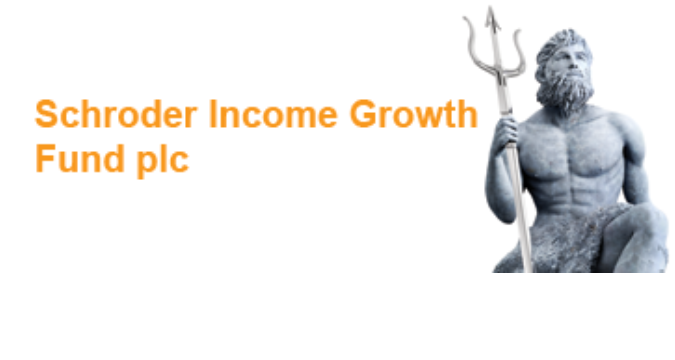Schroder Income Growth Fund (SCF) has published its half-year results to 28 February 2025, reporting a NAV total return of 2.9%, trailing its All-Share Index benchmark, which it says returned 5.2%. While performance lagged over the period, the board has unveiled a series of proactive steps aimed squarely at improving shareholder outcomes – including material cost reductions, stronger discount management, and investment team enhancement.
The share price total return for the period was 1.8%, reflecting a widening of the discount to NAV from 10.4% to 11.6%. However, since the period-end, the company has bought back over £1.7m worth of shares and the discount has narrowed to 7.4% as at 12 May 2025.
Fee reduction and efficiency measures to lift returns
A central plank in the company’s strategy to enhance returns is a significant reduction in ongoing charges. From 1 September 2025, the investment management fee will fall from 0.45% to 0.40% and will be levied on the lesser of market capitalisation or NAV – a move that benefits shareholders in periods of discount. Simultaneously, the separate charge for administration and secretarial services will be scrapped entirely.
These combined measures are expected to reduce annual expenses by more than £300,000, equivalent to 0.4p per share – a meaningful uplift in value for shareholders, particularly in an environment of subdued capital growth. Chairman Ewen Cameron Watt commented:
“Costs, the volatility of any discount to NAV, and the use of leverage to raise returns and reserves to support dividend growth are all tools to boost shareholder outcomes. We are determined to deploy them to that end.”
Discount management strategy reinforced
The board has also committed to a more assertive approach in managing the share price discount to NAV. It aims to contain this within a single-digit range during normal market conditions – a reflection of the underlying portfolio’s quality and long-term return potential.
During the six-month reporting period, the company repurchased 211,100 shares at an average price of £2.87, equating to 0.3% of share capital. A further 373,486 shares were bought back after the period-end, highlighting the board’s willingness to act decisively to reduce discount volatility.
The chairman emphasised that a combination of sustained performance, clearer communication, and proactive buybacks will be key to sustaining a healthier rating over time.
Strengthening the investment team
In another move designed to underpin long-term shareholder value, SCF has promoted Matt Bennison to co-manager alongside Sue Noffke, Head of UK Equities at Schroders. Bennison, who joined Schroders in 2012, has supported SCF’s portfolio since 2017 and brings continuity and deep knowledge of the trust’s strategy. He also co-manages Schroders’ Prime UK Equity strategy and has worked closely with Noffke for nearly a decade.
The appointment further institutionalises the investment process and reinforces succession planning, a welcome step for investors focused on long-term stewardship.
Growing and smoothing the dividend
SCF continues to deliver on its income mandate, with first and second interim dividends for FY2025 set at 3.25p per share – up from 2.50p in the prior year. The board plans to pay a larger proportion of the full-year dividend through the first three interim payments, smoothing the income profile and providing more predictability for shareholders.
Revenue income fell 3.9% during the half year, reflecting stock-specific decisions and a broader market shift toward share buybacks. Nonetheless, SCF retains a robust revenue reserve of 7.8p per share, equal to 57% of last year’s total dividend, giving the board flexibility to maintain or grow the dividend in tougher periods.
SCF has now raised its dividend for 29 consecutive years and remains on track to retain its AIC “Dividend Hero” status.
Portfolio and market backdrop
SCF’s structural bias toward mid and small caps, which has supported performance in recent years, proved a headwind during the half year as large caps outperformed. Holdings in Taylor Wimpey, Pets at Home, and QinetiQ dragged on performance, while Standard Chartered, 3i, and Burberry added value.
Gearing averaged 12.3% and was modestly accretive to returns. Post period-end, gearing was reduced slightly to 11.1%, in line with a more cautious stance amid increased macro uncertainty.
The managers remain constructive on UK equities, which continue to trade at a 20% discount to global markets and to their own long-term average. The freedom to invest across the market cap spectrum, combined with a contrarian approach and an eye for income resilience, remains central to SCF’s long-term strategy.
[QD comment MR: While performance disappointed in the short term, SCF’s fee reductions, commitment to discount control, and continued dividend growth should be well received. The promotion of Bennison strengthens the management bench, and the trust’s flexible mandate and revenue reserves offer resilience. Investors seeking growing income from an unloved asset class with recovery potential may find the current valuation compelling.]
